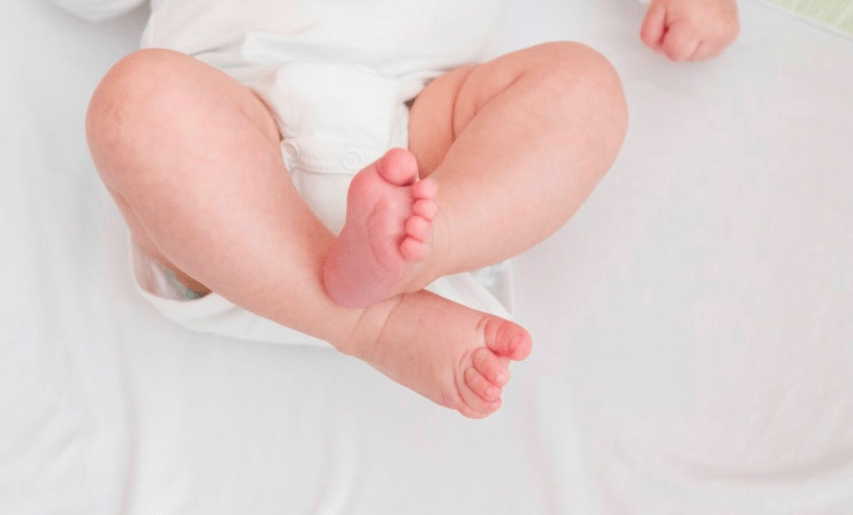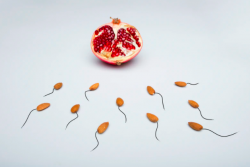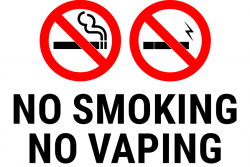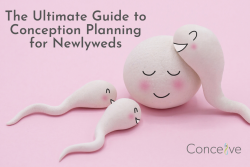As of writing (March 23, 2020) this is what we know. More information comes to light as the global situation evolves, and the team at Conceive Health will continue to share it with you.
Currently, the European Society of Human Reproduction and Embryology recommends actively avoiding pregnancy at this time. However, the American, British, and Canadian Obstetrical and Gynaecological Societies have not (but they have recommended postponing all medical fertility treatments). However, you can begin focusing on preconception health and improving the quality of your sperm and egg.
Here is what we know so far:
In two reports totalling 18 women in China who were positive for COVID-19 infections, they delivered healthy babies that were negative for the virus. (1, 2)
We know that the coronavirus family is UNRELATED to the Zika virus. This means that we do not have the same fears of microcephaly or other life threatening congenital effects on the fetus. (6)
There has been no evidence of vertical (mother-to-infant) transmission found in any cases of SARS, MERS, or COVID-19. This mean that we have less reason to suspect a direct negative effect of the virus on the fetus. (3)
We do know that pregnant women have been more susceptible to potentially severe disease when infected with other respiratory infections like influenza, SARS-CoV1, or MERS-CoV. (2)
In case reports covering MERS-CoV, a related virus, one maternal and fetal death were dependent on preexisting conditions in the mother eg, asthma and pulmonary fibrosis. A comprehensive literature review on MERS-CoV published June 2019 only covers 11 cases. As with SARS and MERS, pregnancy outcomes are likely to be strongly correlated with the degree of maternal illness. (4)
“It remains to be seen whether the effects of COVID-19 on pregnant women and their fetuses will be similar to those of SARS and MERS. To date, the reported case-fatality rate for the general population infected with COVID-19 is lower than that of either SARS or MERS (estimated at 1%–2% vs. 9%–10% and 35%–40%, respectively). Similarly, by now, there have been over 60 cases of pregnant women with confirmed COVID-19 in China and the vast majority of these women have had mild to moderate pneumonia. To date here has been one case of severe maternal morbidity secondary to COVID-19 reported. This 31-year-old woman was infected at 34 weeks gestation and went on to experience severe respiratory compromise and multi-organ dysfunction requiring extra-corporeal membrane oxygenation (ECMO). The pregnancy outcomes of the reported cases have been largely good, with spontaneous and iatrogenic preterm labour being the most commonly reported adverse pregnancy outcomes. One stillbirth has been reported and this occurred in the case of severe maternal illness reported by Liu et al. Given the limited data, it is too early to determine if higher rates of adverse outcomes are expected in pregnant women infected with COVID-19. ” (5)
At this time, the Society of Obstetricians and Gynaecologists of Canada is not recommending any specific different guidelines for pregnant health care professionals – they are advising that in addition to personal protective equipment and good hygiene practice, any additional measures are to be determined on a case by case basis. (5)
Other considerations:
- Right now we don’t know what things will look like in hospitals 9+ months from now. Will they still be overloaded? Will a woman in labour be able to have accompaniment in the delivery room, whether a spouse, doula, family member, photographer etc?
- What will access to medical services look like during a pregnancy? ultrasounds, regular check ups, and medical care for specific conditions of pregnancy.
There are no correct answers to these questions.
What do you think, how is this news impacting your decision to try to conceive?
REFERENCES
https://www.uptodate.com/contents/coronavirus-disease-2019-covid-19 https://www.thelancet.com/journals/lancet/article/PIIS0140-6736(20)30360-3/fulltext https://www.sogc.org/en/content/featured-news/Updated-SOGC-Committee-Opinion%E2%80%93%20COVID-19-in-Pregnancy.aspx https://www.sciencedirect.com/science/article/pii/S168411821830152X?via%3Dihub https://www.sogc.org/en/content/featured-news/SOGC-Statement-Pregnant-Health-Care-Professionals-and-COVID-19.aspx https://www.rcog.org.uk/globalassets/documents/guidelines/2020-03-21-covid19-pregnancy-guidance-2118.pdf
Additional reading:
https://www.fertstertdialog.com/users/16110-fertility-and-sterility/posts/62274-covid-19-inklings https://cfas.ca/CFAS_Communication_on_COVID-19.html https://www.acog.org/topics/covid-19 https://www.asrm.org/news-and-publications/news-and-research/press-releases-and-bulletins/covid-19-suggestions-on-managing-patients-who-are-undergoing-infertility-therapy-or-desiring-pregnancy/










